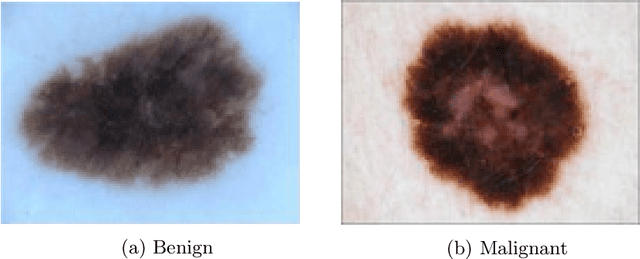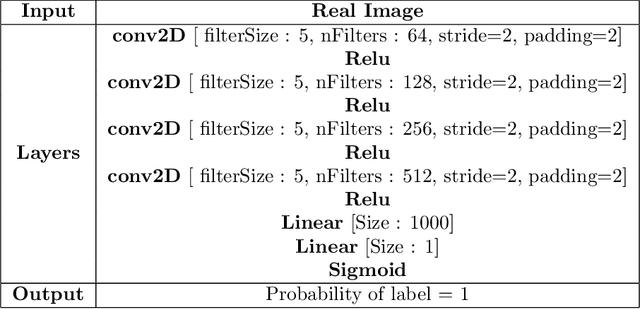Denoising Adversarial Autoencoders: Classifying Skin Lesions Using Limited Labelled Training Data
Paper and Code
Jan 02, 2018



We propose a novel deep learning model for classifying medical images in the setting where there is a large amount of unlabelled medical data available, but labelled data is in limited supply. We consider the specific case of classifying skin lesions as either malignant or benign. In this setting, the proposed approach -- the semi-supervised, denoising adversarial autoencoder -- is able to utilise vast amounts of unlabelled data to learn a representation for skin lesions, and small amounts of labelled data to assign class labels based on the learned representation. We analyse the contributions of both the adversarial and denoising components of the model and find that the combination yields superior classification performance in the setting of limited labelled training data.
 Add to Chrome
Add to Chrome Add to Firefox
Add to Firefox Add to Edge
Add to Edge